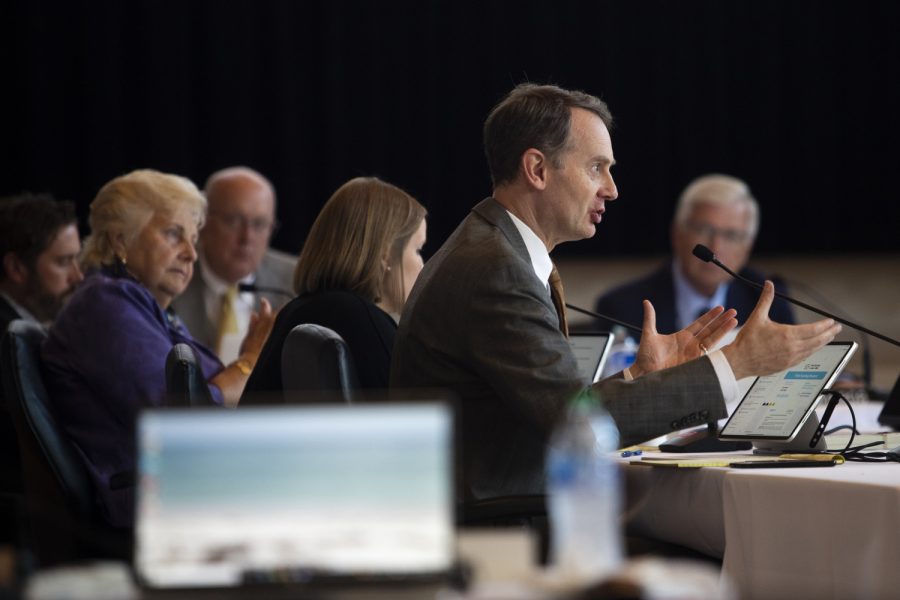By Jack Berning
Over the next few years, the federal government is likely to forgive up to $108 billion in student loans, according to the Government Accountability Office.
CBS News has reported that the GAO said the Department of Education underestimated the federal cost of the income-driven repayment plans, which more than doubled from $25 billion to $53 billion for student loans issued between the program’s start in 2009 and 2016.
Income-driven repayment plans make it easier for federal student loan borrowers to pay back loans if student debt is high compared with income. The loans are based on income, family size, residing state, and federal student loan type.
To receive an income-driven repayment plan, students must reapply each year in order to remain eligible for the lowest possible monthly payment amount. As income, family size, or state of residence changes, so does the monthly payment amount.
According to the Federal Reserve Bank of New York, there is currently $1.26 trillion in total U.S. student-loan debt, with 44.2 million Americans saddled with such debt.
In 2014, the average student debt for four-year institutions in Iowa was $26,814, and 68 percent of students graduated with debt. The University of Iowa’s average student debt was $28,716, and 56 percent of students graduated with debt.
For the majority of the UI student population needing to pay off debt after graduation, planning can help avoid having to default in the future. Some of these plans include income-based repayment plans or standard plans.
“The UI offers great resources so students can feel prepared upon graduation,” said Cindy Seyfer, the UI senior associate director of Student Financial Aid. “Students with questions regarding loan-repayment options can meet with Financial Literacy Services staff through the Office of Student Financial Aid. These staff are able to review options with students based on their individual circumstances.”
If students apply for an income-based repayment plan each year and qualify, they may have reduced monthly payments for up to 25 years, and any remaining balance after that time may be forgiven. However, students may be required to pay income tax on the amount that’s forgiven.
“The benefit of an income-driven repayment plan is that the monthly payment is generally less than it would be on a standard 10-year repayment plan. This is beneficial when a graduate is just starting out and has a lower salary,” said Sara Even, a UI associate director of Financial Aid.
She said the monthly payment will adjust as the graduate’s salary increases or decreases, and loan forgiveness is available if the balance is not repaid after a set amount of time.
“I guess it really just depends on how much money you think you will make out of college,” UI student Jeremy Sindelar said. “The standard 10-year plan is more efficient, but it feels risky. I think that’s why the income-based plan is much more attractive to students like me who will come out with debt.”
The problem with income-based plans, according to the GAO as reported by CBS, is that the Education Department provided unreliable estimates of the program’s costs.
Because the debt will be forgiven if not paid after 25 years, the remaining balance of the loan is then never paid to the government. With a greater number of loans not paid than expected, the government loses out on billions of dollars.
With the state Board of Regents’ Monday announcement of another tuition increase for UI students next fall, the 2 percent hike may force more and more students to resort to loans in the coming years.
“We recommend that borrowers choose an income-driven repayment plan if the standard repayment is unmanageable,” Even said. “Defaulting on a federal student loan has dire consequences, such as adverse credit or garnishing tax refunds, making income-driven repayment plans a popular choice to avoid default.”







